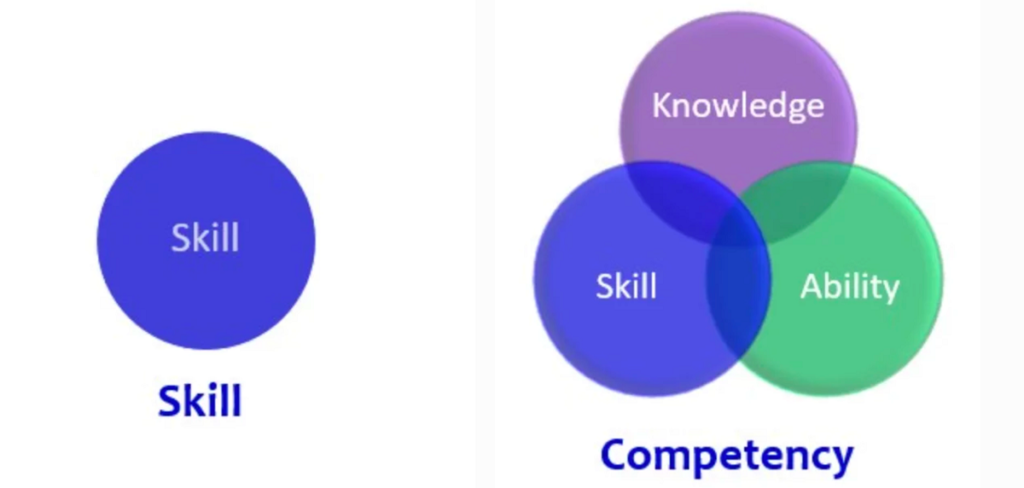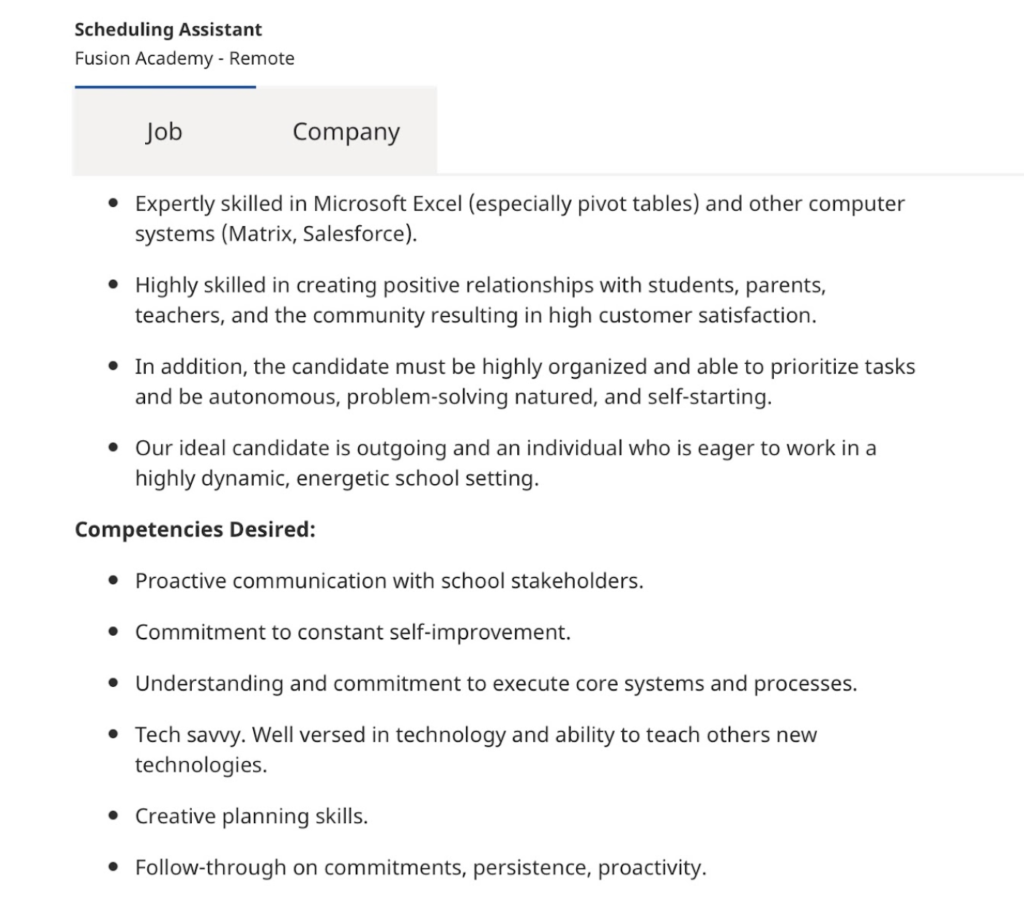- Why I Used Grok + Gemini and ChatGPT to Build My Outreach List (And How Recruiters Can Too) - January 22, 2026
- The Diversity & Inclusion Glossary — A List of 300+ Helpful Diversity Terms (2026 Update) - January 19, 2026
- Why You Need a Job Description Revision Tracker (Before Your Next Audit) - January 9, 2026
Skills vs competencies…what’s the difference? Are they the same? Which should you use in your job postings? In this blog, we’ll dig in for answers.
Skills vs Competencies
Skills refer to an employee’s learned activities (through training or experience) related to a role.
Competencies are skills (combined with abilities and knowledge) that help an employee succeed at job functions. Competencies are behaviors resulting in a desired outcome for an organization.
Let’s dig further into both terms with examples.
Skills Meaning
You can use the term “skill” when referring to a learned activity needed to carry out a job function. The skills a job-seeker has are gained through training or experiences.
Examples of skills are:
- Using Microsoft Word, Excel & PowerPoint
- Fixing leaks on domestic plumbing
- Writing a reference report
- Driving a commercial or construction vehicle
- Designing marketing materials using Adobe InDesign
These skills are specific tasks that anyone can learn to do with training. Clearly defined skills are essential in your job posting. Without them, an applicant might not be able to perform the required job functions.
Competencies Meaning
The term “competencies” describes a collection of skills, abilities, and knowledge. Together they create effective performance.
Examples of competencies are:
- Communication
- Customer service
- Conflict resolution
- Team building
- Strategic planning
Competencies are less absolute and might not come from 1 or 2 training sessions. They are the combination of a learned skill, plus knowledge and ability. Competencies develop as employees apply a skill (or group of related skills) to job functions AND gain the knowledge (and ability) to be competent.
The diagram below helps clarify the skills vs competencies question:

source: The Peak Performance Centre
Competencies vs Skills — Examples
Here are 10 main competencies that companies often ask for:
Note: Creating a list of competencies for your job posting is valuable, but make sure it’s not too long. Research suggests candidates with autism and women might not apply for roles unless they meet all job requirements.
Here are 2 examples of skills vs competencies in live job postings from Indeed.
In the example below, a clear skill is outlined in the first bullet, and then it goes on to describe competencies:

In the example, instead of using the term competencies, they used the terms that make up the definition (knowledge, skills, and abilities):
Core Competencies vs Skills
The term Core Competencies goes beyond traditional competencies. Core competencies are built as you move up in an organization. This quote from Jane McNeill, Managing Director at Hays Australia, explains it perfectly:
“As with skills, there are various types of competencies – including core competencies, which are those that any successful employee requires to rise through an organisation. In the words of marketer Aja Davis Isble, “…a core competency is something that is core to you and how you work – so it is something that could potentially set you apart from every other candidate.””
source: HAYS
What about “capabilities”?
Capabilities is often used interchangeably with competencies. A best practice is to use capabilities when you don’t require an applicant to already have an attribute, only that they can build the ability once they’re hired.
For example:
“someone can be capable of becoming a manager, but has not yet developed the competencies needed to be a manager. Hence, using the term capabilities is good in instances where someone may be considered for a new role. They have the capability to function in that role, but still need to obtain the necessary competencies to be fully effective.”
source: LinkedIn
Why I Wrote This?
Ongig loves anything job description-related. This includes bringing clarity to questions around parts of a JD…like skills vs competencies. Check out our Text Analyzer software if you need help creating clear, consistent JDs (that are bias-free).
Shout-Outs:
- Competencies, Capabilities and Skills. What’s the difference and how are they used? (by Aida Hadziomerovic)
- 10 Key Job Competencies Everyone Needs to Know About (by Possible Works)
- Difference Between Competencies and Skills (by The Peak Performance Centre)
- Skills vs Competencies — What’s the Difference and Why you Should Care (by Jane McNeill)
